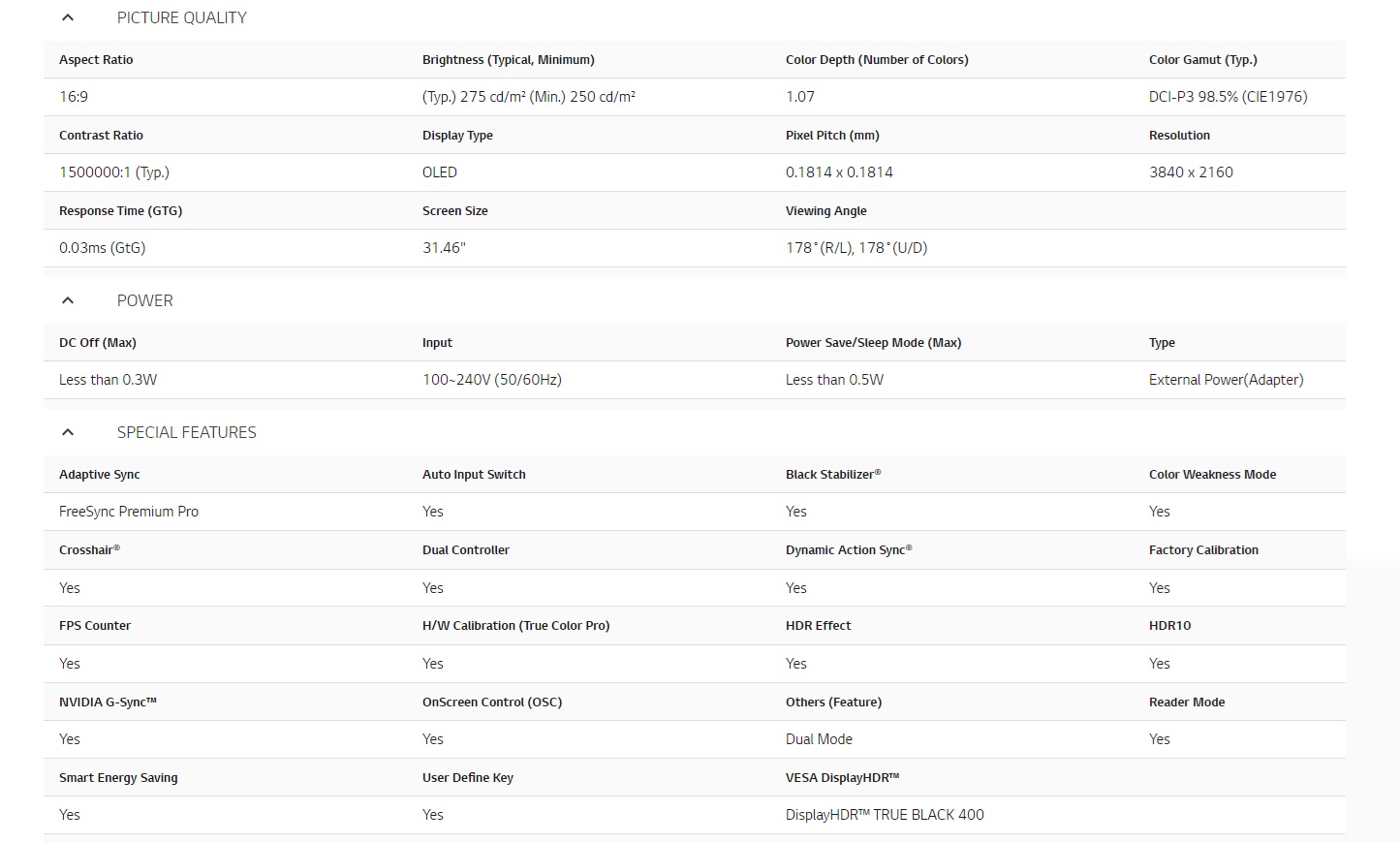By CE Critic - Buy Better Tech
Table of Contents
- Introduction: LG's Dual-Mode OLED Revolution
- The LG UltraGear OLED 32GS95UE: Technical Specifications
- Pixel Sound: Innovative Audio from the Screen
- Pricing and Competition
- Understanding the Advantages of Dual-Hz Technology
- Scaling and Image Quality Concerns
- Conclusion: Is the Dual-Mode Future Worth the Investment?
Introduction: LG's Dual-Mode OLED Revolution
LG, a long-standing innovator in display technology, has shaken up the gaming monitor scene with the release of their "Dual-Mode" UltraGear OLED lineup. The 32GS95UE model, now available for purchase, is a compelling debut for this groundbreaking technology.
The central premise of Dual-Mode is simple: give users granular, on-the-fly control over resolution and refresh rate settings. This means LG's display can transform from a high-fidelity 4K 240Hz media consumption powerhouse into an ultra-competitive 1080p 480Hz powerhouse for esports titles. This duality aims to merge the best of both worlds, a bold concept that could signal a new era of display adaptability.
The LG UltraGear OLED 32GS95UE: Technical Specifications
At the heart of LG's UltraGear OLED 32GS95UE lies a 32-inch UHD (3840 x 2160) Organic Light-Emitting Diode (OLED) panel. OLEDs are renowned for their self-emissive pixels, enabling perfect blacks, exceptional contrast ratios (1,500,000:1 in this case), and wide color gamuts (98.5% DCI-P3). The 16:9 aspect ratio remains a standard for productivity and general-purpose use.
Where things get interesting is in the refresh rate territory. The 4K 240Hz mode delivers the fluidity that enthusiasts demand while still providing the visual detail to enjoy immersive, graphically intensive titles. The 1080p 480Hz mode pushes the performance ceiling for those who prioritize lightning-fast, low-latency responsiveness. Paired with the near-instantaneous 0.03ms gray-to-gray (GtG) pixel response time inherent to OLEDs, motion blur becomes practically non-existent.

Other notable specifications include:
- VESA DisplayHDR True Black 400 certification for an enhanced HDR experience
- AMD FreeSync Premium Pro and NVIDIA G-SYNC compatibility for tear-free, stutter-free gaming
- Connectivity: Two HDMI 2.1 ports and a single DisplayPort 1.4 port
Pixel Sound: Innovative Audio from the Screen
LG has integrated its unique "Pixel Sound" technology into their Dual-Mode monitor. Instead of traditional built-in speakers, it utilizes the OLED panel to generate sound directly via vibrations. The goal is a more immersive and immediate audio experience compared to speakers positioned at the sides or rear of a monitor.
Pricing and Competition
The LG UltraGear OLED 32GS95UE commands a price tag of $1399 (USD). While steep, it's essential to contextualize this within the premium gaming monitor market. High-end OLEDs from competing brands easily reach similar or even higher price points.
The primary value proposition of LG's monitor lies in its Dual-Mode functionality, effectively offering users two high-performance experiences within a single unit.
Understanding the Advantages of Dual-Hz Technology
The appeal of Dual-Hz extends beyond the "best of both worlds" mantra. It addresses a distinct challenge faced by gamers: balancing visual fidelity with competitive reflexes.
Higher resolutions like 4K demand significant graphical horsepower. In some scenarios, sacrificing visuals for additional frames-per-second might be a worthwhile tradeoff. Dual-Mode allows users to make that decision without needing separate displays
It's worth noting that such technology is still nascent, and its broader adoption will play into how compelling an upgrade argument it ultimately becomes.
Scaling and Image Quality Concerns
A potential concern with the Dual-Mode approach is how it handles scaling. Ideally, 1080p content would be rendered with integer scaling (pixels perfectly align for a 'crisp' image) on the 4K screen. However, some form of blurry scaling might be employed. This would negate some of the sharpness benefits of running at native 4K resolution.
Another aspect many reviewers find fault with is the matte anti-glare coating. While effective at reducing reflections, these coatings can diffuse light, which may slightly diminish the vibrancy that OLED displays are otherwise known for.
Absolutely! Here's a suitable conclusion to wrap up the rewritten article:
Conclusion: Is the Dual-Mode Future Worth the Investment?
LG's UltraGear OLED 32GS95UE makes a strong case for the potential of Dual-Mode technology. While the premium price tag will be a barrier for some, enthusiasts who highly value versatility may find it justified.
It's also crucial to recognize this as a first-generation implementation. Future iterations might address potential concerns like scaling methods and the impact of anti-glare coatings.
If subsequent monitors refine the Dual-Mode proposition, we could see a future where swapping resolutions and refresh rates on the fly becomes a hallmark of high-end gaming displays. This would alleviate the need to compromise on either visuals or performance, opening up new possibilities for both competitive and immersive gaming experiences. We look forward to the CE Critic Score





